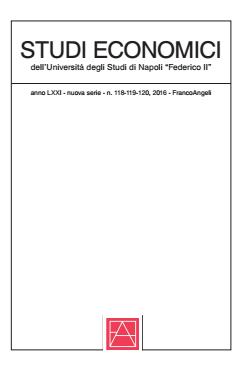The Coexistence Among Forprofit and Nonprofit Organisations. A Possible Explanation This paper aims to extrapolate the conditions under which the existence of wage differentials in favour of for-profit and against non-profit organisations, found in many empirical studies, can be beneficial to the development of both and ultimately lead to a harmonious coexistence. In the spirit of Akerlof and Yellen (1990), the key concept of the analysis is that the workers’ remuneration comprises two parts, the first of which is monetary and the second, non-monetary. In fact, if the remuneration is only monetary and labour is a homogeneous good, no long-term difference can possibly exist between the for-profit and the non-profit sector. The two sectors coexist only when the remuneration includes non-monetary factors, as ideologically heterogeneous workers sort themselves out into either one or the other sector. This result is illustrated by presenting two simple theoretical exercises.

